Sustainability
Toward a
Sustainable Future
Under the philosophy of bridging growers and consumers, Farmind has provided all kinds of solution for fresh fruits and vegetables. Going forward, our group will continue to conduct corporate activities that lead to the betterment of the environment and society, while taking into consideration the changes and challenges facing the world.

Fundamental Sustainability Policy
Fundamental Sustainability Policy and Its Concept
Under the corporate philosophy of bridging growers and consumers, since its foundation the Farmind Group has continuously strived to realize food security. By building a full range of fresh produce distribution platforms centered on cold chain and information networks that bring production areas and consumers throughout the world and Japan together and proceeding with resolving issues related to fresh produce distribution and improved efficiency, we have contributed to stably supplying fresh fruits and vegetables as well reducing food loss and waste. Furthermore, by promoting the building of an agricultural business model capable of efficiently and sustainably producing high-quality fruits and vegetables, we aim to revitalize domestic agriculture, create jobs, and improve the food self-sufficiency rate. We believe that sustainable management is promoting business activities that include supporting stable agricultural infrastructure for growers, the safe and secure eating habits of consumers, and the contribution to realizing food security. By pressing ahead with our main business into the future, we will improve our corporate value and contribute to the realization of a sustainable society.
Farmind Corporation
President and CEO
Tatsuo Horiuchi
Initiatives for the Environment
Reducing Food Loss and Waste

By being able to store, process, and transport food by maintaining the appropriate temperature throughout the way from the production areas to the retail stores, we extend the fresh produce freshness preservation period and reduce waste caused by the deterioration of quality.

We plan the estimated annual sales amounts of our products with each store. We avoid overproduction in the production stage and ascertain the increases and decreases in the number of products required by stores using an IT system. This allows for flexible adjustments to sales volumes, thus reducing sales losses and waste caused by mismatches in supply and demand.
Promotion of Recycling
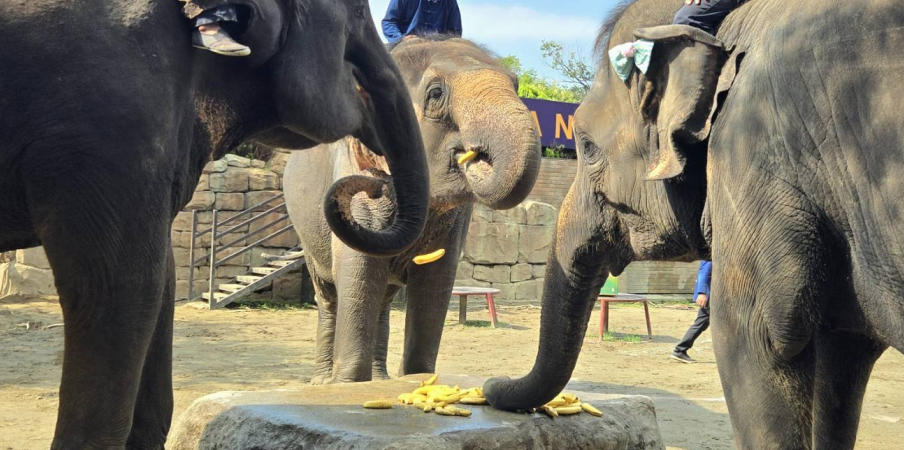
Photo provided by: ICHIHARA Elephant Kingdom
We strive to the extent possible to recycle fruits and vegetables that cannot be sold due to slight color unevenness, discoloration, or small scratches, the outside leaves of leafy vegetables removed when packed into bags, and fruit skins generated in cut fruit processing. For example, we utilize them as resources rather than as industrial waste, such as by recycling them as feed for domestic animals and rearing animals, or using them as the raw material for biomass energy and compost for farms.
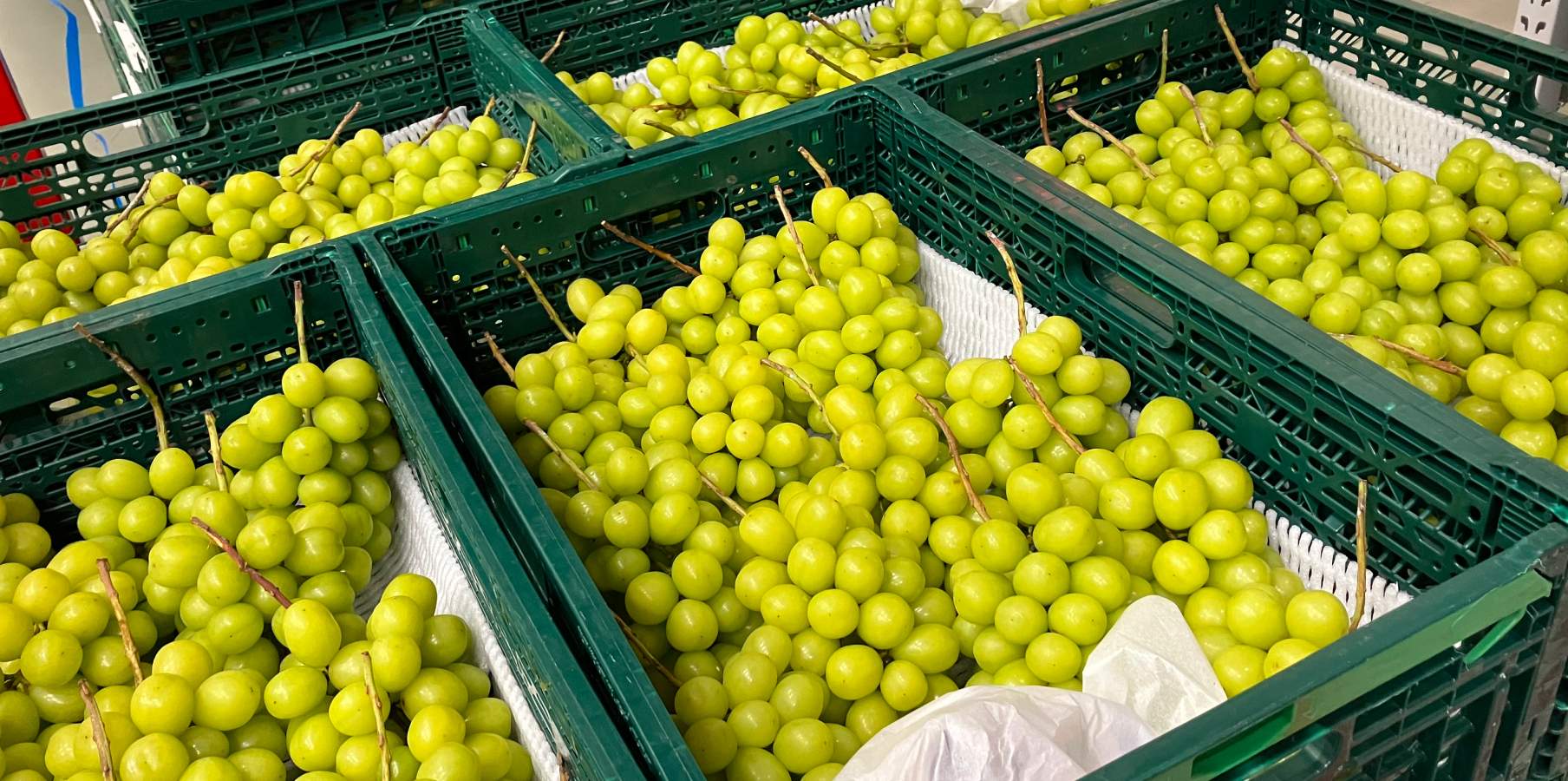
We have adopted returnable containers and cushioning materials, which can be reused, as the containers used for transportation in order to reduce the amount of expanded polystyrene waste.
Reduction of CO2 Emissions
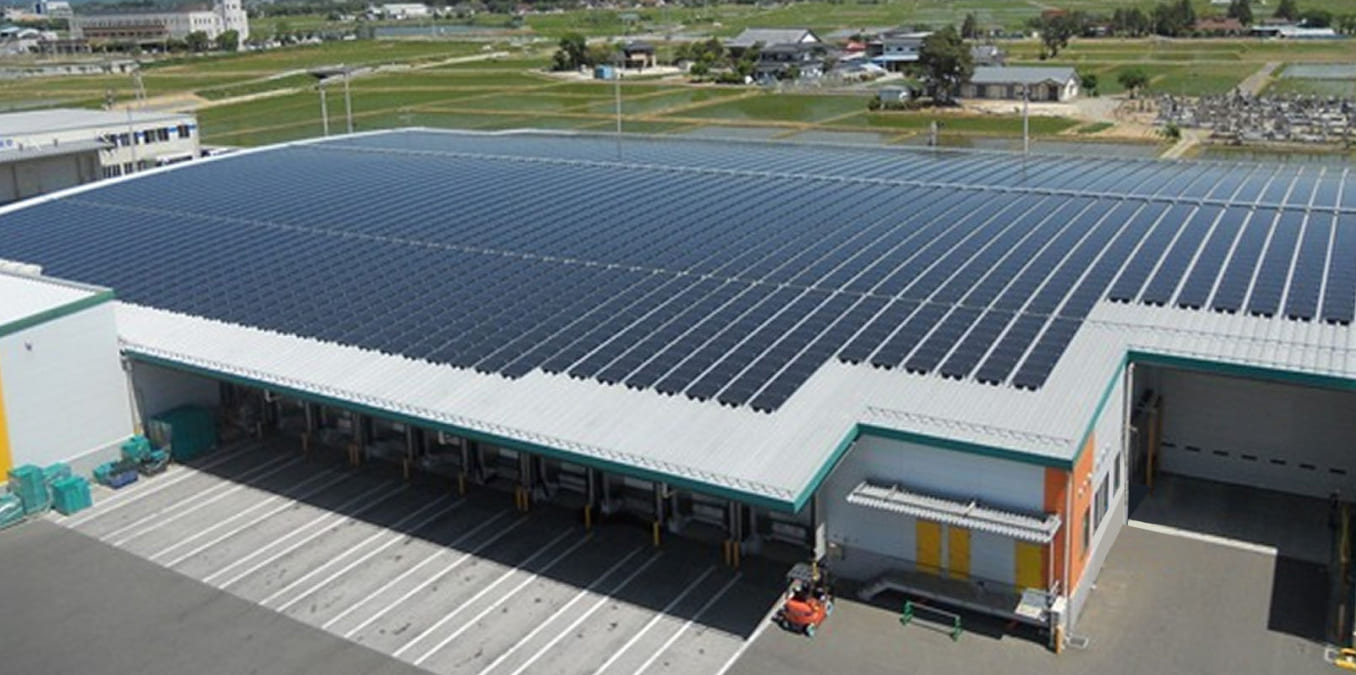
We have been working on reducing our greenhouse gas emissions toward the realization of a carbon-neutral society. We will continue to conduct business activities that contribute to the reduction of CO2 emissions, such as installing photovoltaic power generation facilities at four large-scale distribution centers and improving the processing system to save power consumption in the ripening process.
Initiatives for Society
Revitalization of Domestic Agriculture
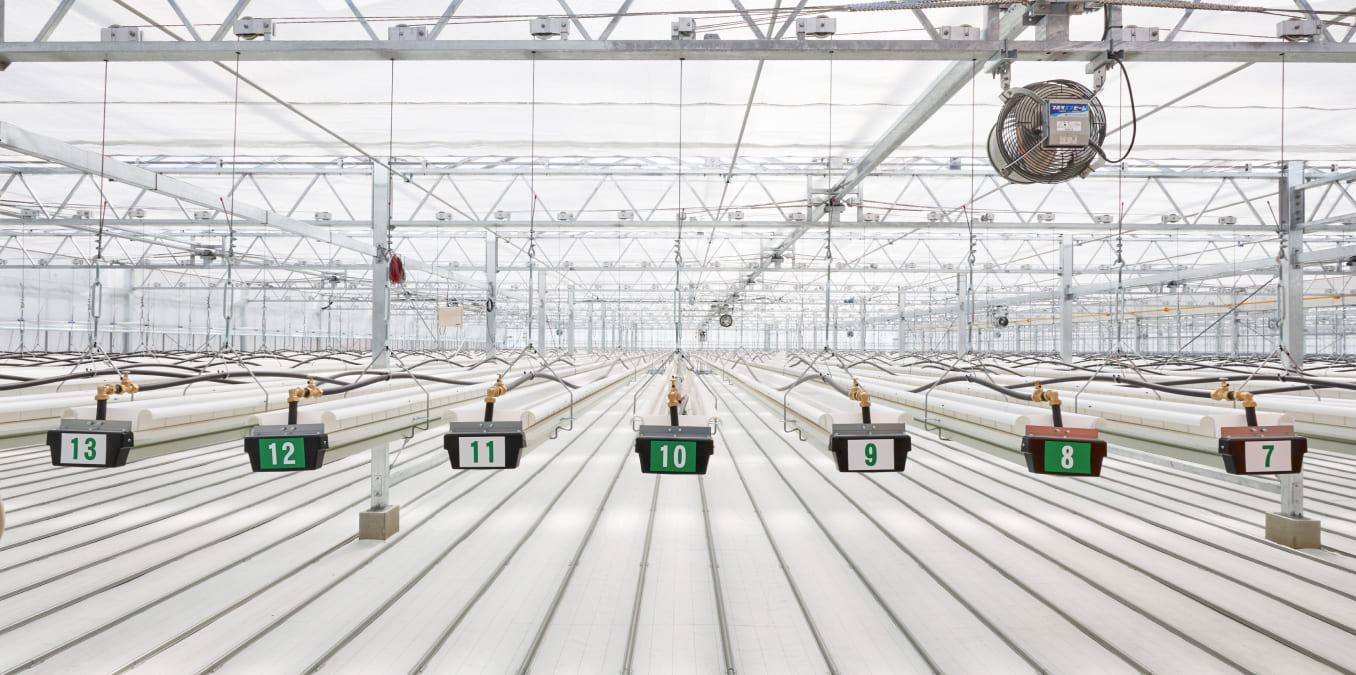
Agriculture under the current situation in Japan has various issues, such as a shortage of workers, an increase in abandoned farmland, and other issues. To be able to eat delicious and safe fruits and vegetables in the future, we deploy a next-generation smart agriculture business. We are making innovation happen throughout entire agriculture, such as production at our large-scale farms that have adopted new technologies.
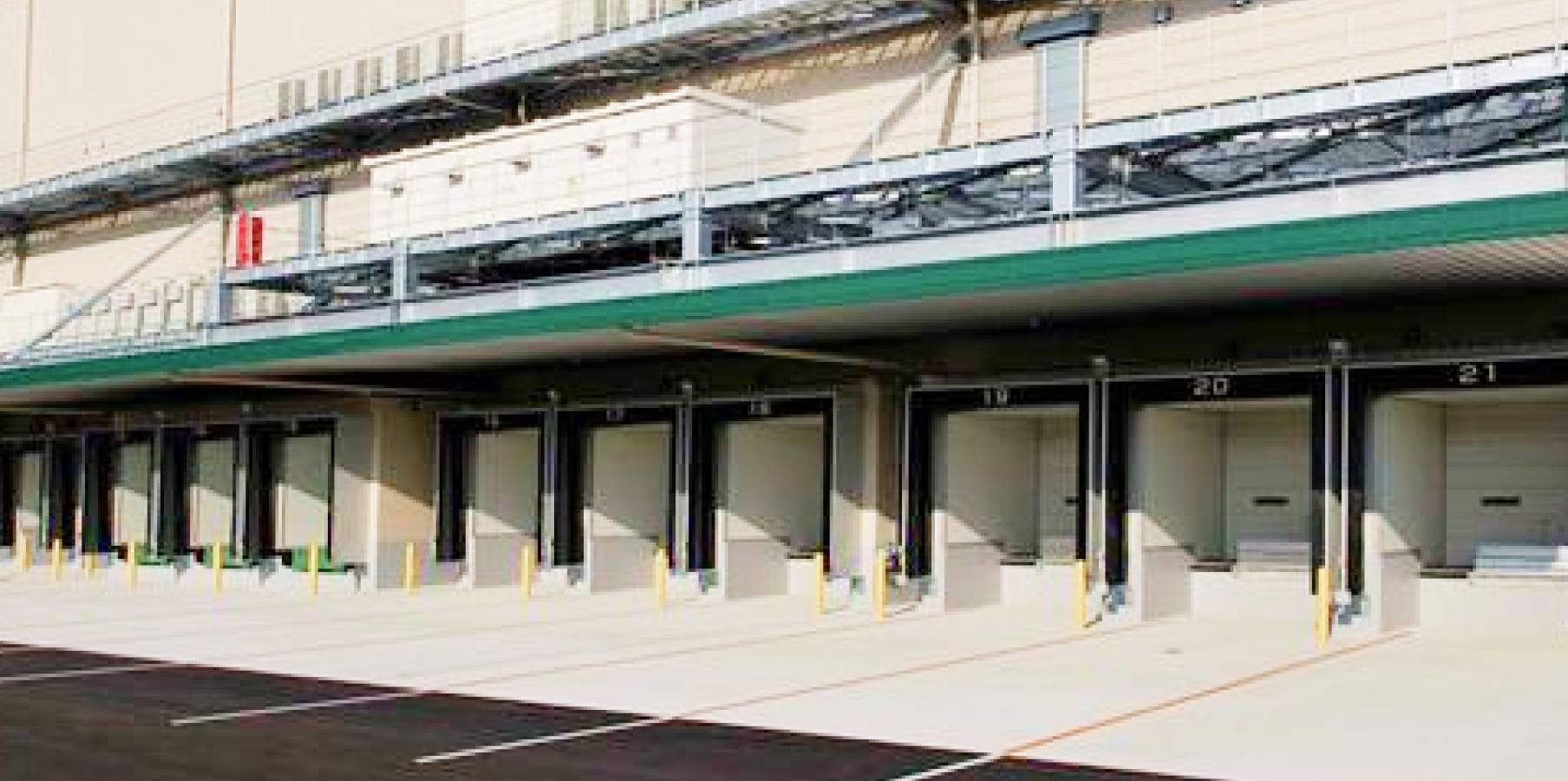
In the capital and business alliance with JA ZEN-NOH that began in 2021, JA ZEN-NOH’s producer network and our cold chain network have created organic synergy. In addition, by improving stock points that enable storage and packing on the production area side, we improve the issues of logistical problems and a shortage of workers in order to realize stable supply.
Realization of Stable Supply

The stable supply of food in Japan is significantly supported by imports from overseas countries. To be able to reduce the impact of the global situation and climate change, we are diversifying our procurement channels on a global scale. For example, by entering into contracts for one kind of fruit or vegetable with growers in multiple countries/regions, we have enabled the supply of stable quality and prices for a long period of time.
For Safety and Security

The inability to manage production, logistics, and sales at a production location can be cited as one reason that the traceability of fruits and vegetables is generally considered to be difficult. We manage all processes using an IT system to ascertain information from harvest to sales. This enables us to improve safety and credibility.
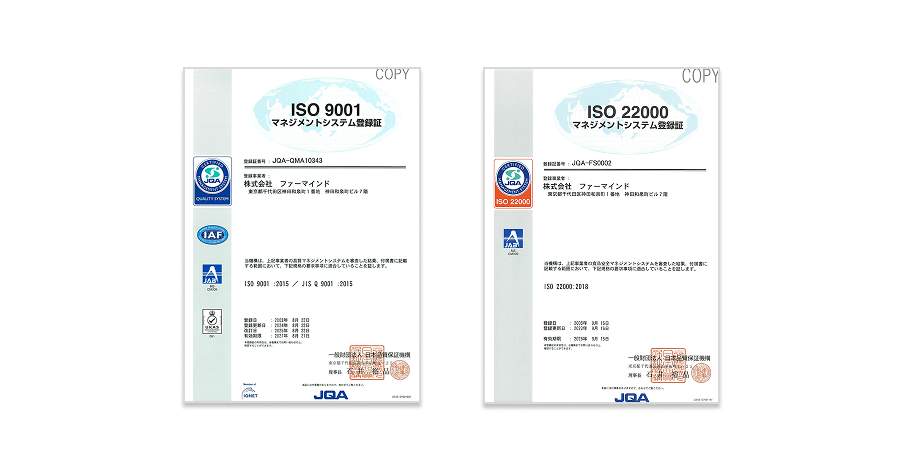
We have obtained ISO 9001 certification, which is an international standard for quality management to provide consistent products/services and improve customer satisfaction, and ISO 22000 certification, which is an international standard for the management system to practice food safety management, including hygiene. We are working on enhancing management in order to be able to provide safe and secure products.
※ISO22000:fresh-cut fruit product, roasted sweet potato product
ISO 9001 Quality Policy and
ISO 22000 Food Safety Policy
“By increasing the sophistication of our system for responding to the diversification of consumer lifestyles and market changes, we will contribute to the development of the industry and the realization of rich eating habits as a service provider in fruit and vegetable distribution.”
1.By effectively utilizing the Farmind Group’s nationwide network and functions, we assist in creating an environment that ensures produce at home and abroad is safe and secure and is delivered to the consumers who eat them.
2.We respond to the diversified needs of consumers, develop and provide evidence-based safe and secure products, and transmit information.
3.By recognizing the importance of food safety and hygiene and thoroughly implementing compliance as well as actively putting effort into sustainability, we fulfill our social responsibility.
4.We achieve the above by continuously improving our quality management system.
CSR Activities
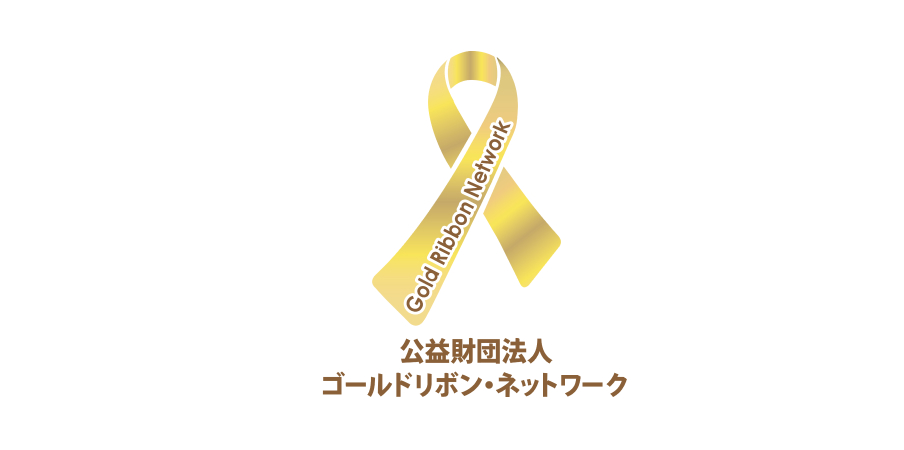
Other than our business activities, we are continuously thinking about how we can contribute to society and take action. We support the activities of the Gold Ribbon Network, a public interest incorporated foundation that conducts activities to overcome pediatric cancer and we donate part of our sales to them. In addition, we sponsor the Gold Ribbon Walk, an event that supports pediatric cancer patients.
